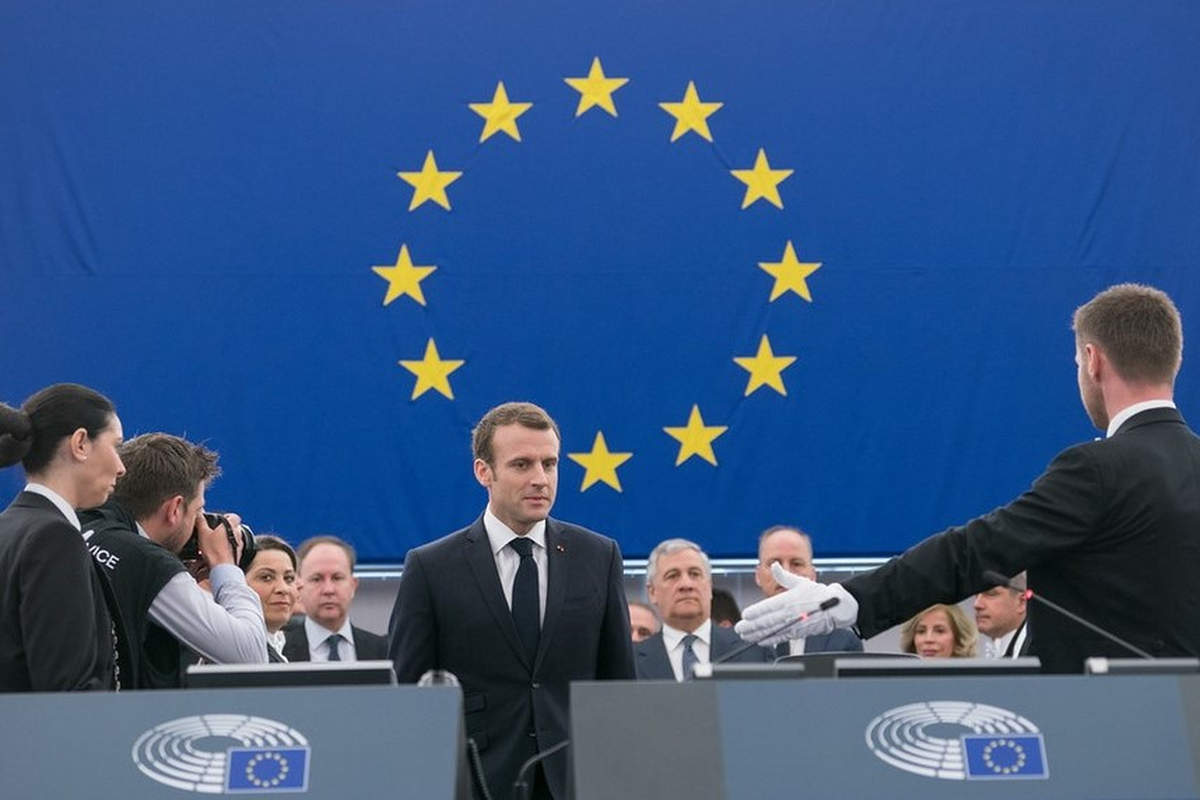Against the backdrop of geostrategic tensions and the war in Ukraine, President Macron announced at Eurosatory that we are “entering a war economy.” But where does the French and European defense industry stand? Here is an overview in five episodes.
The concept of sovereignty (2/5)
By Procopius of Caesarea*
Macron claims from the rooftops the necessity of a sovereign Europe: if one accepts this point of view, one must note that he is starting from a very long way off, as the current European situation shows. The only example is the Cyprus conflict, a very small, very local conflict, which Europe has constantly shown itself incapable of resolving (1974: Turkish invasion of Cyprus – Turkish military offensive which led to the occupation by Turkey of 38% of the Cypriot territory, including the richest grain plains). European sovereignty” in Macron’s sense has been completely flouted and continues to be so. This example suffices to characterize the current impotence of Europe (which still claims to meddle in world affairs).
“Don’t interfere in my business
The very existence of a European defense industry presupposes the existence of a European army (client) which presupposes a sovereign Europe (global power). We therefore go back to the concept of sovereignty (applied in this case to Europe).
It should be noted that the current concept of sovereignty of Brussels Europe, whose champion is Macron, is different from the one we used to refer to, namely the concept of historical sovereignty, formalized by the Treaty of Westphalia. The latter is roughly as follows:
- the capacity to live in a given geographical area according to rules (laws) defined by the inhabitants of that area
- the related capacity to deny and counter any threat to the first point.
Let us specify that the Westphalian order corresponds to an international situation in which the States exercise the regalian functions, are sovereign, and whose limits correspond to those of the nations. Historically in Europe, the Westphalian order was based on a reality so tangible that it was not discussed: a “country” was defined by two criteria: ethnic homogeneity and religion. This is no longer the case in the West, whereas it is a central point that has been revived in China (conceptual assimilation of China and Han). It is also the source of irredentism which is not dead as V. Putin shows us today. It should be noted that China claims (when it suits it) to be a Westphalian pillar of the world order to be created – indeed, one of the consequences is the following: don’t interfere with what happens in my country!
The Good, the Right, democracy…
The (Brussels and Macronist) concept of European sovereignty is fundamentally different: it induces a claim to universality that translates into a messianic character. It is a copy of the American concept according to which ”my democratic model of political and social organization is universal because it is the right one” (songs declined on all the tunes), I am the camp of ”good”, of ”right”, of ”democracy”, of ”freedom”, of ”all possible rights”, etc., and I am entitled to judge you wherever you are. and I am entitled to judge you wherever you are and if I have the possibility, I have the legitimate right (for your good!) to force you to my views (interventionism).
The associated concept of defense has nothing Westphalian about it: beyond the “isolationist and protective” character, it is fundamentally “interventionist” in spirit, because it considers that if someone, somewhere, does not share the “values and the Enlightenment”, then he is a potential enemy that must be brought back to Reason. This concept has already polluted all international organizations, a logical consequence of American supremacy (soft power).
The cuisine of dictatorships
In no way can Macron claim to be a sovereignist like General de Gaulle (even if he does not hesitate to maintain ambiguity), who was a fervent ‘Westphalian’ as he says and repeats in his books (the UN is a ‘thing’) – it is even this conception that presided over the creation of the Strategic Forces, which were intended to protect France alone and not that of the little buddies.
Current events (Macron’s declaration of June 14, 2022, intended to be solemn, but simply ridiculous: I am the Republic – the supreme value – and my adversaries are not republicans) provide us with an opportunity to measure the profound nature of this system of thought: if it meets with opposition, it excludes; while professing, of course, the virtues of dialogue (blah, blah, blah) and diplomacy (tartuffery is one of the prerogatives of the self-proclaimed holders of “values” and of the Lights). It is on this ingredient that the cuisine of underhanded dictatorships whose malfeasance is limited only by the incompetence of their leaders is based.
“Who cares about the people?
Note: the interventionist model is consubstantially a generator of conflicts. They are already at work in Europe and will inevitably degenerate, but that is not the object of this paper. Moreover, the Brussels-style sovereignty does not recognize the opinion of the people, because this very notion is inoperative in their ‘model’ (remember the 2005 referendum with 56% of French people rejecting the treaty establishing a constitution for Europe… and the constitution is in place because the people don’t care… dixit Sarkozy). The people is not enlightened by the Enlightenment: it is therefore nothing, and one is justified in doing its good, even in spite of it, and one is even justified in renewing it (marked immigrationist will).
*Procopius of Caesarea (6ᵉ century A.D. is a Byzantine rhetorician and historian whose work is devoted to the reign of the emperor Justinian). This is of course a pseudonym. It is the name of a person who is very well informed about the technological, political and geostrategic stakes of our time.
Next article: “Is a European defense industry credible” (3/5)

